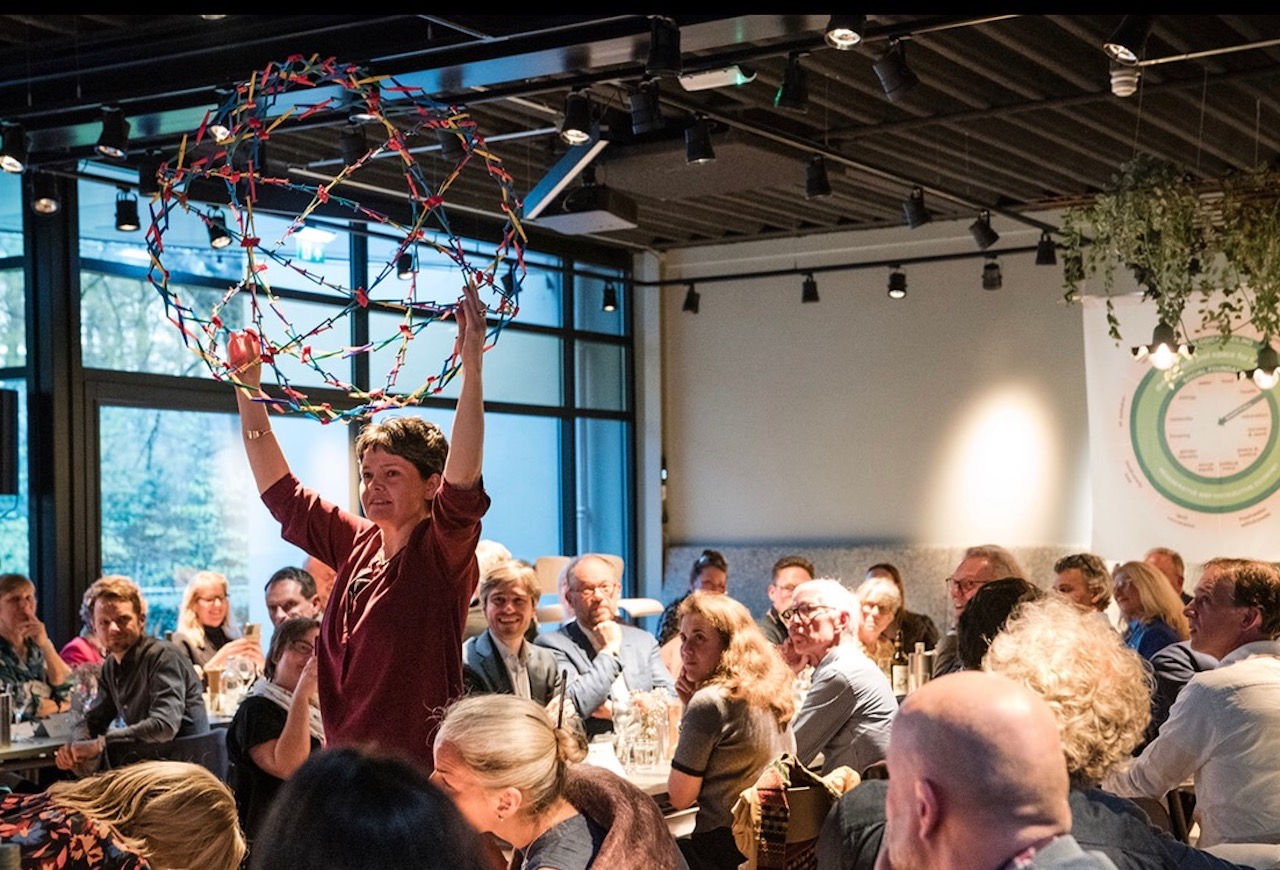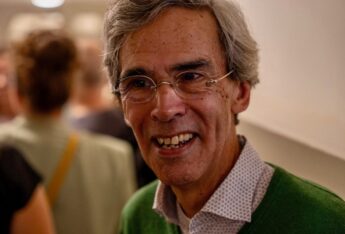Ahead of this week’s PYM Impact Days, Ignaz Anderson discusses how wealth owners can find inspiration in the deep connection to nature of ancient cultures and embrace a a more systemic and regenerative approach to investing.

The 2024 PYM Impact Days will take place on 14-15 April in Driebergen, the Netherlands, under the title ‘Ancient Wisdom for Future Transformation’.

The annual event brings together different generations of wealth owners to discuss ways to invest their capital consciously. This year’s edition will centre around how old and new wisdom can shape us, our planet, and our investments.
Ignaz Anderson, director of the Donor Impact Invest Fund and content member at PYM, talks to Paula Garrido about the connection between old wisdom and modern investment practices, and the importance of collective action.
Paula Garrido (PG): The theme for PYM Impact Days 2024 is ‘Ancient Wisdom for Future Transformation’. What does this mean?
Ignaz Anderson (IA): Ancient cultures are deeply connected to their lands, their rivers, their mountains and all the living creatures around them. They would often use expressions like ‘I am nature’. For example, there is a brand-new film in the Netherlands called ‘I Am the River. The River is Me’, highlighting Maori culture and the significance of the Whanganui River, in New Zealand, the first river in the world to be granted legal personhood.
Those cultures have a view of the world that is more ‘eco-centric’ as opposed to egocentric, and we recognise that we, in our world, are more disconnected. Earth, air or water don’t mean so much to us, which means we can damage them and still be able to carry on as normal in the way we work or invest.
If we want to transform our future, it’s important to reconnect with these living principles, working in a more circular, systemic, and regenerative way.
Last year’s event focused on imagining a new economy and the need for systemic change and this year’s discussions will be a continuation to that. As human beings we often place ourselves at the top of the mountain – we see ourselves as more important than anything else, and we can take anything and call it ours. And when it is not ours, we pay for it and then we own it.
We are trying to focus on the paradigm shift to a different worldview. Not the worldview that looks at me and the world as two separate entities, but one that makes me feel part of it. Because if I’m part of the world, I have the responsibility to not just take, but also to give and to be more in harmony with nature.
PG: How can we connect ancient wisdom with modern investment strategies?
IA: Our PYM community are impact investors and philanthropists who want to generate positive social and environmental impact and this is in line with this new paradigm of more holistic or systemic investments.
When investing, wealth owners should ask themselves: is this investment helping to regenerate and reconnect to the sources it belongs to? Is it only taking from these sources, or is it also giving back? And here it’s where investment can be connected to this ancient wisdom we mentioned earlier.
Frank van Beuningen, founder of PYM, always asks ‘what’s your meaning of money?’. Because your money is not beside you. You are it. And that’s also connected to an ancient wisdom approach. If you are your money, you need to be honest and think what you want to achieve with it.
PG: Your upcoming event will also focus on collaboration and co-creation. Do you think collaboration among like-minded impact investors is improving?
IA: Yes, we can see that it’s improving because we have a number of movements driving this, such as Katapult, We Are Impact Collective or Toniic – these are all collectives of like-minded people who work together to maximise impact.
The pooling of capital and resources for impact is crucial. For instance, within Pymwymic there is a pool where people make investment decisions collectively. A different investment committee is chosen every two years, and they look for new investments. And they are not the only ones pooling resources – we are seeing more private investors starting to pool their funds.
But it is not just about capital. As an entrepreneur, when you have something new to offer, you need people around you to help you reach your mission. And capital helps, but you also need time from people who have more experience in entrepreneurship than you.
PG: Earlier you mentioned a number of movements promoting new ways for investors to work together. But what about movements of thought. Which themes are becoming more prevalent across your community?
IA: We are definitely seeing some topics becoming movements in themselves, for instance steward ownership, a concept that is growing very strongly in the Netherlands but also in other countries such as Germany or the UK. It’s also a whole-system approach.
Another thought movement we are dedicating time to is the concept of Philanthropy 4.0, looking at the future direction of philanthropy. This concept focuses on ways to pool philanthropic capital for initial investments which can serve as a catalyst for other investors to move in. But it goes beyond the pooling of funds – it is also about encouraging impact investors and donors to work together to maximise impact.
PG: Any particular topics or speakers taking part in your event you would like to highlight?
IA: Regenerative, systemic and holistic investments will be central to many conversations during our Impact Days. One of our speakers this year is John Fullerton who, after a career as a banker in Wall Street, changed his way of looking at capital and created the Capital Institute focusing on regenerative economics. We will also have Lisa Kleissner, co-founder of Toniic, talking about holistic investments. Lisa, who is a native Hawaiian, also co-founded Hawaii Investment Read, a capacity-building programme for indigenous and island social enterprises.
The 2024 PYM Impact Days take place on 14-15 April in Driebergen. More information about the programme can be found here.






